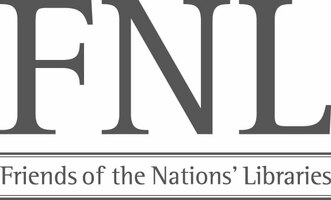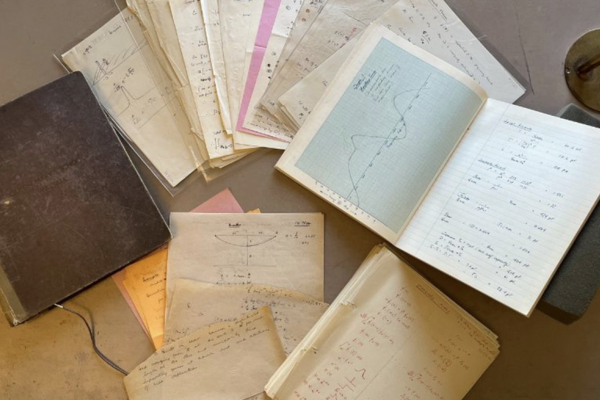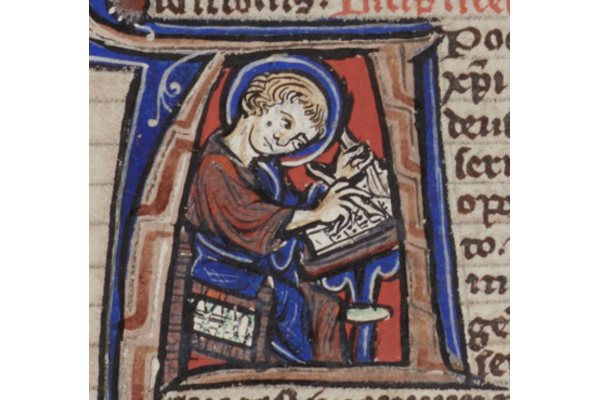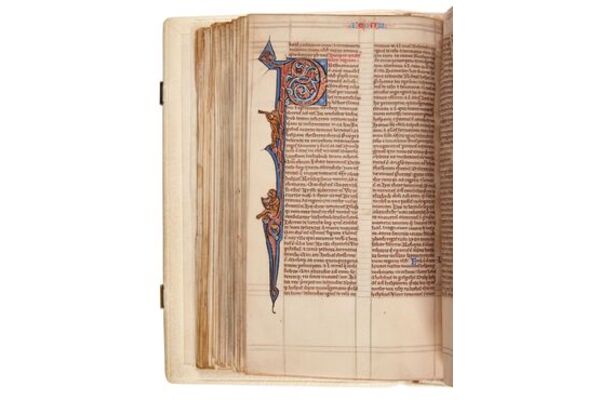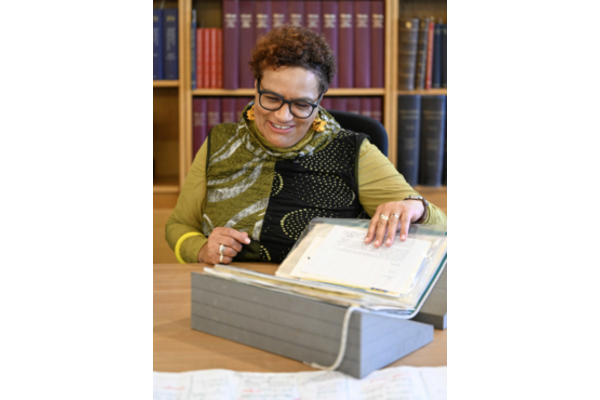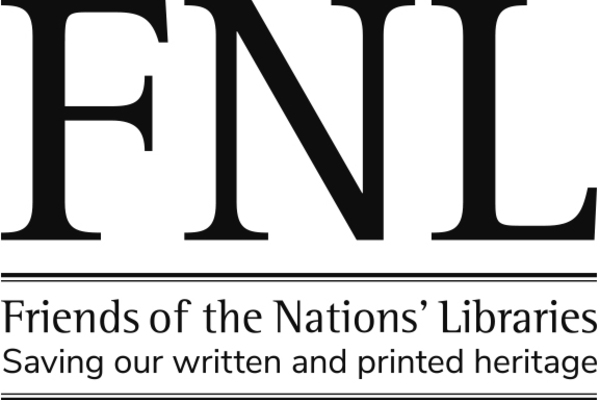A rare and significant archive of Alan Turing’s unpublished Second World War papers has been saved for the nation thanks to a campaign by Friends of the Nations' Libraries.
Following his ground-breaking work on the Enigma machines at Bletchley Park, in 1943 Turing (1912- 1954) turned to building a portable voice encoder for short-distance transmission to be used in military operations. The project was code-named ‘Delilah'. With the help of electrical engineer Donald Bayley (1921-2020) they built a single prototype to encipher speech for transmission via a telephone line or VHF radio link with accurate and complete reproduction at the other end.
During the development work at Hanslope Park, now the home of HMGCC (His Majesty’s Government Communications Centre), Turing and Bayley kept a logbook of their experimental results. Bayley also kept handwritten notes of lectures Turing gave to interested Hanslope Park engineers about the mathematics behind the project, along with loose pages of diagrams, calculations, explanations, and other electronic and mathematical theorems and problems.
Unpublished evidence of Alan Turing’s work has rarely survived. Turing himself did not usually keep his research notes, working drafts, or correspondence. This collection of papers dating from 1943 to 1946 sheds light on some of Turing’s most inventive, secret, and overlooked work. Though much of his work was unknown at the time of his death, today he’s among the UK’s most iconic figures.
Valued at £397,680, the papers were at risk of leaving the country unless a UK institution or individual tried to purchase the item and retain it in the UK for the public to enjoy. The Reviewing Committee on the Export of Art and Objects of Cultural Interest, supported by the Arts Council, recommended that the Secretary of State for Culture, Media and Sport put a temporary export licence stop on the work in August 2024, which they found to be a national treasure.
The notebooks were saved thanks to a major £250,000 donation that was secured by FNL from leading algorithmic trading firm XTX Markets as well as a £20,000 grant from Friends of the Nations' Libraries. The balance of support has come from a £97,876 grant from the National Heritage Memorial Fund, private donations, and King’s College.
It’s brilliant news that the Friends of the Nations’ Libraries charity has successfully campaigned to save Alan Turing’s vital notebooks. Turing was not only a pioneering figure in science and mathematics, but also a national hero. This is a powerful example of what can be achieved when private and charitable sectors come together. After a government export ban was placed on the notebooks, this collaboration has ensured that these treasures will be preserved for years to come.
Secretary of State for Culture Media and Sport Lisa Nandy
This extraordinary private donation means that crucial papers written by one of Britain’s geniuses have been saved and can studied at Cambridge. It is a wonderful act of generosity by XTX Markets and Alex Gerko and we are delighted to have played a part in bringing together this brilliant collaboration between XTX Markets and King’s College, a centre of academic excellence to save our heritage.
Geordie Greig, Chair of Friends of the Nations' Libraries
The 'Delilah’ papers are a unique collection of notes from one of the nation’s greatest mathematicians. It’s important that this archive remains in the UK and is made publicly accessible, so we are thrilled to be part of that effort.
Alex Gerko, Founder and co-CEO, XTX Markets

Alan Turing handwritten notes on the Bandwidth Theorem.
Courtesy of King's College.
[Catalogue ref AMT-H-1-2-01r]
